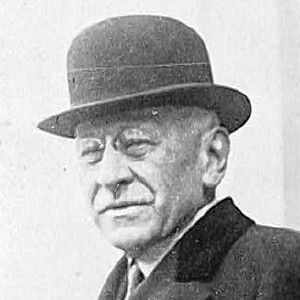Stephen Armstrong: House Speakership
| Published: 01-16-2023 10:44 AM |
Two years ago, a crowd of hysterical insurrectionists stormed the Capitol to block the counting of electoral votes. Taking their cue from Trump, 147 distempered Republicans voted to throw a valid election into Never-Never Land. Five police officers died.
Today, the Republicans, a majority party, could not elect a Speaker of the House after 11 votes.
For those who are today amazed, please consider the seating of the 31st Congress, elected in 1848, as the “slave question,” one of the foundational structures of the Union since 1787, surfaced in the Congressional swamp:
■Wilmot had proposed that no new state chartered from Federal Land could be brought into the Union as a slave state;
■Harriet Tubman had fled to freedom and was conducting other Black people to do the same; the Underground Railway was small but functioning; the slave “property flight” to Free States was increasing, as was the fury of southern Slave Power at not being able to retrieve their “property”;
■The 30th Congress deadlocked on Slavery in the Union.
On December 3, 1849, the 31st House convened.
The Democrats (tilted Southern, descendants of Andrew Jackson) held a slim majority over Whigs (tilted Northern) 113-107. Nine Free Soil representatives, a small minority party, held the tie-breaking power. The Free Soil representatives tried to carve a deal with the Whigs, which was exposed, to the fury of the Democrats, and the balloting for Speaker went on for days.
Article continues after...
Yesterday's Most Read Articles
 ‘Home away from home’: North Amherst Library officially dedicated, as anonymous donor of $1.7M revealed
‘Home away from home’: North Amherst Library officially dedicated, as anonymous donor of $1.7M revealed
 Super defers Amherst middle school principal pick to successor; one finalist says decision is retaliation for lawsuit
Super defers Amherst middle school principal pick to successor; one finalist says decision is retaliation for lawsuit
 Granby Bow and Gun Club says stray bullets that hit homes in Belchertown did not come from its range
Granby Bow and Gun Club says stray bullets that hit homes in Belchertown did not come from its range
 Connecticut man gets 8 years in Hadley shooting
Connecticut man gets 8 years in Hadley shooting
 Design Review Board in Amherst backs 5-story apartment project connected to old Hastings building
Design Review Board in Amherst backs 5-story apartment project connected to old Hastings building
 Political newcomer defeats Shores Ness for Deerfield Selectboard seat
Political newcomer defeats Shores Ness for Deerfield Selectboard seat
Finally, the 31st Congress changed its rules to accept a plurality vote, and Democrat Howell Cobb of Georgia (who became a Confederate and died in 1868) won the Speakership on the 63rd ballot, 19 days after it all started. The compromise solution continued as before: Union with slavery.
The political structures had cracked, however, and the Civil War was not far away.
In 1848, the obvious explosive issue was the Union accepting slavery and the slavers’ drive to expand.
Do we face some fundamental issue today, or is the deadlock merely the result of Republicans having a tantrum?
Stephen Armstrong
Hadley
]]>

 Guest columnist Rudy Perkins: Dangerous resolution pins ‘aggression’ on Iran
Guest columnist Rudy Perkins: Dangerous resolution pins ‘aggression’ on Iran Richard S. Bogartz: What the ghosts of Warsaw Ghetto know
Richard S. Bogartz: What the ghosts of Warsaw Ghetto know Guest columnist Dr. David Gottsegen: Age issue not so key as question of marbles
Guest columnist Dr. David Gottsegen: Age issue not so key as question of marbles Guest columnist Martha Hanner: Spirit of philanthropy can uplift so many others
Guest columnist Martha Hanner: Spirit of philanthropy can uplift so many others